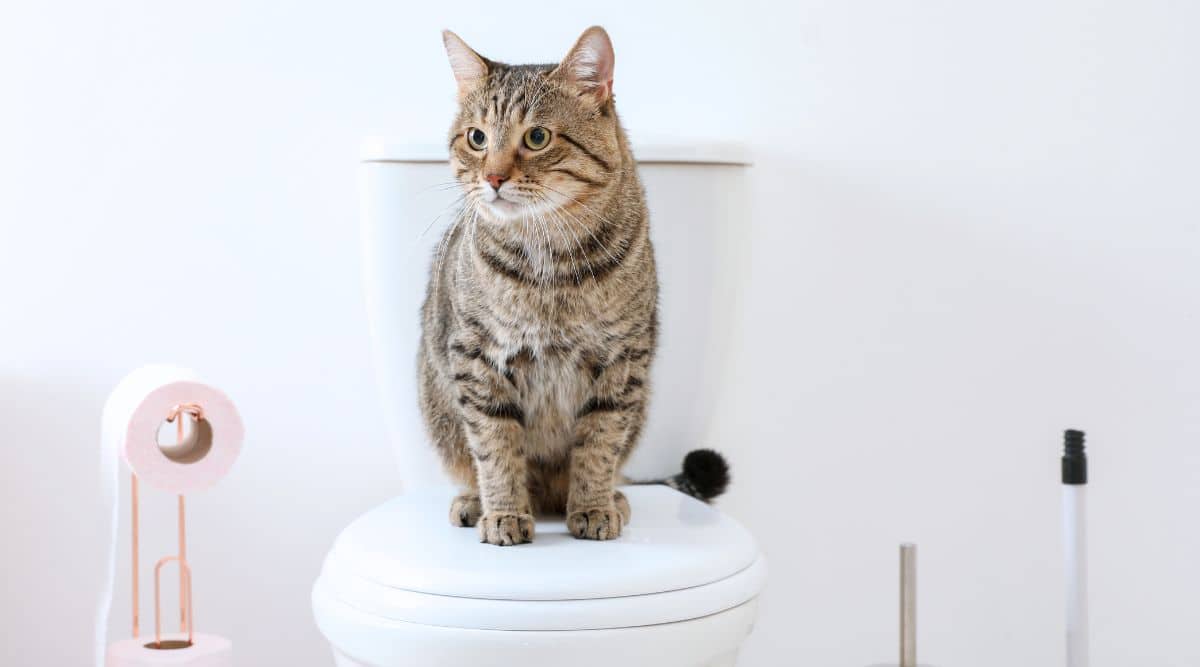Dangers of Disposing Cat Poop in Your Toilet - Precautionary Steps
Dangers of Disposing Cat Poop in Your Toilet - Precautionary Steps
Blog Article
What're your thoughts with regards to Don’t flush cat feces down the toilet?

Introduction
As pet cat proprietors, it's vital to bear in mind exactly how we take care of our feline good friends' waste. While it may appear convenient to flush feline poop down the toilet, this method can have detrimental repercussions for both the environment and human wellness.
Alternatives to Flushing
Fortunately, there are safer and extra liable means to get rid of feline poop. Think about the adhering to alternatives:
1. Scoop and Dispose in Trash
The most usual technique of taking care of feline poop is to scoop it into an eco-friendly bag and throw it in the garbage. Make sure to use a specialized litter inside story and deal with the waste without delay.
2. Use Biodegradable Litter
Go with biodegradable feline clutter made from materials such as corn or wheat. These trashes are eco-friendly and can be safely taken care of in the garbage.
3. Hide in the Yard
If you have a yard, think about hiding pet cat waste in a designated location far from veggie yards and water resources. Be sure to dig deep enough to prevent contamination of groundwater.
4. Set Up a Pet Waste Disposal System
Purchase an animal garbage disposal system particularly created for feline waste. These systems utilize enzymes to break down the waste, decreasing odor and environmental impact.
Wellness Risks
Along with environmental issues, flushing pet cat waste can also posture wellness dangers to humans. Cat feces might include Toxoplasma gondii, a bloodsucker that can trigger toxoplasmosis-- a potentially serious illness, specifically for expectant women and individuals with damaged body immune systems.
Ecological Impact
Flushing feline poop introduces hazardous virus and parasites right into the water, posturing a considerable risk to marine ecosystems. These contaminants can adversely influence marine life and concession water quality.
Final thought
Responsible family pet possession extends past providing food and shelter-- it additionally entails appropriate waste administration. By refraining from flushing pet cat poop down the commode and selecting different disposal approaches, we can minimize our environmental impact and shield human wellness.
Why Can’t I Flush Cat Poop?
It Spreads a Parasite
Cats are frequently infected with a parasite called toxoplasma gondii. The parasite causes an infection called toxoplasmosis. It is usually harmless to cats. The parasite only uses cat poop as a host for its eggs. Otherwise, the cat’s immune system usually keeps the infection at low enough levels to maintain its own health. But it does not stop the develop of eggs. These eggs are tiny and surprisingly tough. They may survive for a year before they begin to grow. But that’s the problem.
Our wastewater system is not designed to deal with toxoplasmosis eggs. Instead, most eggs will flush from your toilet into sewers and wastewater management plants. After the sewage is treated for many other harmful things in it, it is typically released into local rivers, lakes, or oceans. Here, the toxoplasmosis eggs can find new hosts, including starfish, crabs, otters, and many other wildlife. For many, this is a significant risk to their health. Toxoplasmosis can also end up infecting water sources that are important for agriculture, which means our deer, pigs, and sheep can get infected too.
Is There Risk to Humans?
There can be a risk to human life from flushing cat poop down the toilet. If you do so, the parasites from your cat’s poop can end up in shellfish, game animals, or livestock. If this meat is then served raw or undercooked, the people who eat it can get sick.
In fact, according to the CDC, 40 million people in the United States are infected with toxoplasma gondii. They get it from exposure to infected seafood, or from some kind of cat poop contamination, like drinking from a stream that is contaminated or touching anything that has come into contact with cat poop. That includes just cleaning a cat litter box.
Most people who get infected with these parasites will not develop any symptoms. However, for pregnant women or for those with compromised immune systems, the parasite can cause severe health problems.
How to Handle Cat Poop
The best way to handle cat poop is actually to clean the box more often. The eggs that the parasite sheds will not become active until one to five days after the cat poops. That means that if you clean daily, you’re much less likely to come into direct contact with infectious eggs.
That said, always dispose of cat poop in the garbage and not down the toilet. Wash your hands before and after you clean the litter box, and bring the bag of poop right outside to your garbage bins.
https://trenchlesssolutionsusa.com/why-cant-i-flush-cat-poop/

We are very fascinated by Can You Flush Cat Poo or Litter Down the Toilet? and I am hoping you enjoyed reading our blog posting. Enjoyed reading our content? Please share it. Help somebody else locate it. We thank you for reading our article about Don’t flush cat feces down the toilet.
Book-Now Report this page